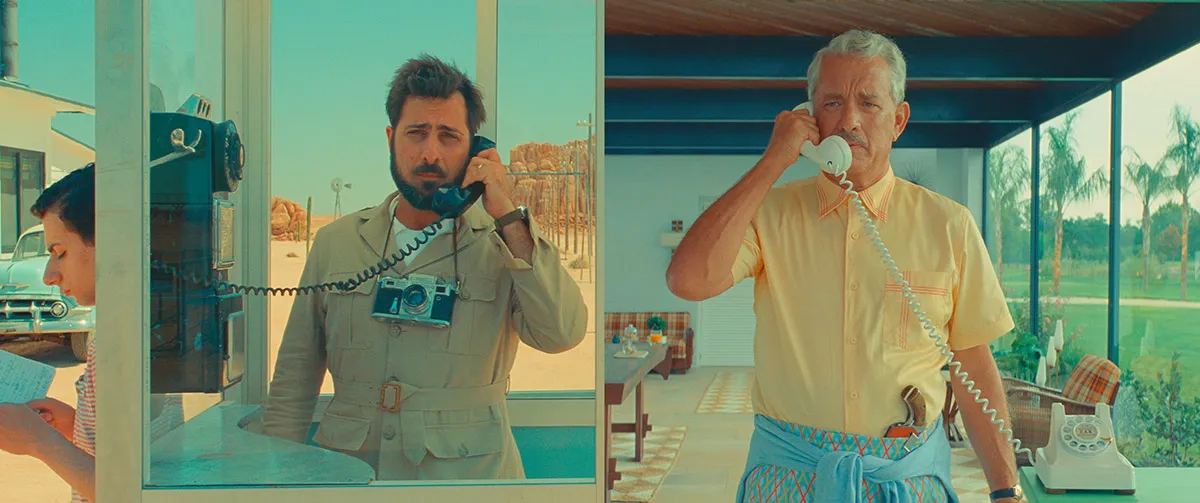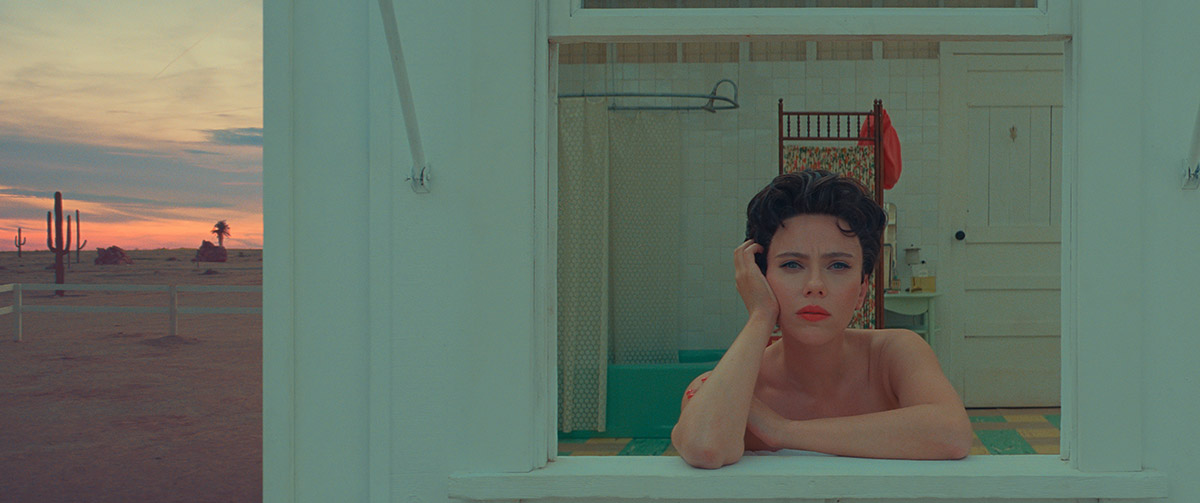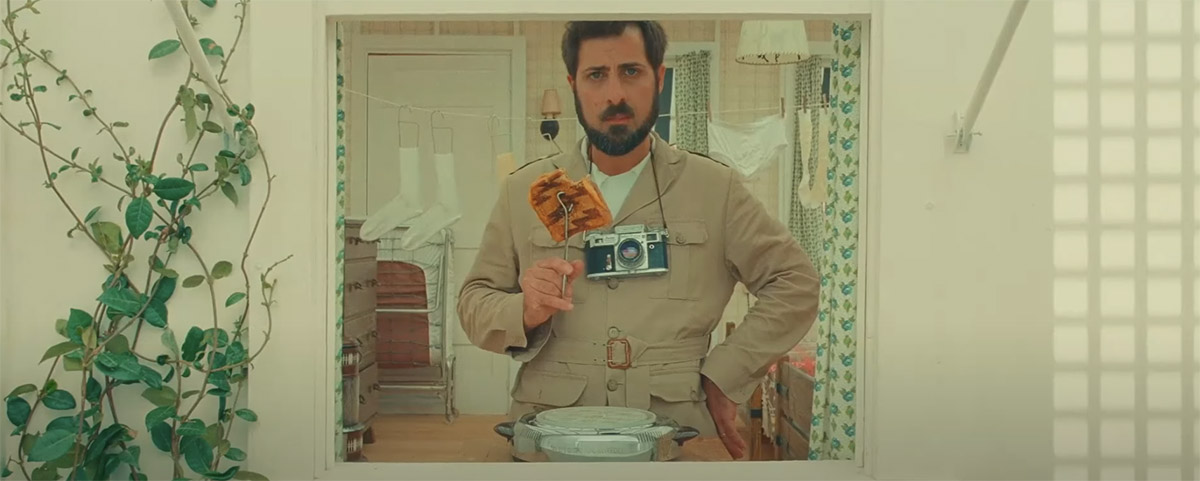Wes Anderson is a master of crafting a hard-hitting story masquerading as a bright and pastel dream. Throughout his expansive career, he has continued to highlight characters and stories of loss or self-discovery hidden behind fun scenario or a red tracksuit. You can spot an Anderson movie from a mile away and fans continue to flock to them for their next aesthetic inspiration and Asteroid City will very likely inspire men around the world to adopt a beard and film camera in the name of Anderson’s latest protagonist, Augie (Jason Schwartzman).
When Augie’s wife dies (played in a photograph by Margot Robbie), he doesn’t tell his kids right away. For weeks, he grieves silently on his own and plans to tell them on a trip to Asteroid City for an event for Junior Stargazers. As is always the case with Anderson’s work, the aesthetically pleasing surface holds a deeper message buried in the wardrobe (which I personally long for). Augie’s grief is palpable and mirrors the framing device of the movie. Asteroid City is not just the destination but also a play being performed, written by Conrad Earp (Edward Norton). In a series of scenes narrated by Bryan Cranston, we see the play being directed by Schubert Green (Adrien Brody) and how the “actors” differ from their Asteroid City characters.
Call me easily emotionally manipulated but framing the movie as a theatre production easily put this in my top ranking of Wes Anderson movies. My favorites are very specific choices from Anderson’s filmography, all of which came into my life when at points when I didn’t know I emotionally needed them. Asteroid City is a perfect pairing to his 2007 film The Darjeeling Limited as it explored grief in a fast and explosive way, while Asteroid City takes you through the process of trying to exist within it.
An aesthetic masterpiece

It’s easy to dismiss Anderson’s films by reducing them down to their bare aesthetic bones. People love to try to recreate his lighting or color schemes on social media. But many of these “memes” miss the heart that his films have. At their core, these films are all about love, loss, and understanding. Often directors are praised for their wide range of films and while Anderson’s aesthetic is what has made him a fan favorite, it does not define his films, especially not Asteroid City.
The Junior Stargazers are his typical group of quirky stars, all dedicated to their intelligence and their ability to create projects worthy of praise and awards. But they are all also deeply lonely and longing for people who understand them. Woodrow (Jake Ryan) is Augie’s oldest and clearly knows his mother is dead but just continues to not accept it.
He goes to the Junior Stargazers with a projection machine that can share images to space but for all his intelligence and his superficially fine relationship with his father, it takes him meeting the other team of kids to finally fit in.
Watching as this team of outcasts has fun playing games, trying to figure out what out-of-this-world experience they’re all having, and bonding over their love for science is heartwarming. Because, at its heart, a Wes Anderson movie is always one for the outcasts.
Finding acceptance

Anderson is one of our best filmmakers because he’s not necessarily focused on reinventing the wheel with every new film. Asteroid City is filled with characters who long for someone to listen. Scarlett Johansson’s Midge sits in her picturesque window, gorgeously framed in a classic Anderson-esque shot, and what we hear over this beautiful picture is, “Maybe we are doomed.”
That’s a sentiment her character constantly embodies throughout the film. Midge is miserable, convinced people will find her dead and alone one day even if she’s accompanied on this trip by her genius of a daughter. Every parent seems to be struggling and even those in charge like General Grif Gibson (Jeffrey Wright) and Dr. Hickenlooper (Tilda Swinton) struggle to hide their unhappiness in the midst of their work. Even if they outwardly seem fine, it’s the small actions that give away to us just how deeply unhappy everyone is when they arrive at Asteroid City.
Collectively though, this group of people sees something out of this world (and it’s not just the asteroid that crashed there that gave the city its name). Through their shared experience and their willingness to grow together, we get to see people who just genuinely want to find their own sense of love and understanding in a way that only Wes Anderson can surprise us with time and time again.
(featured image: Focus Features)










Published: Jun 12, 2023 11:40 am